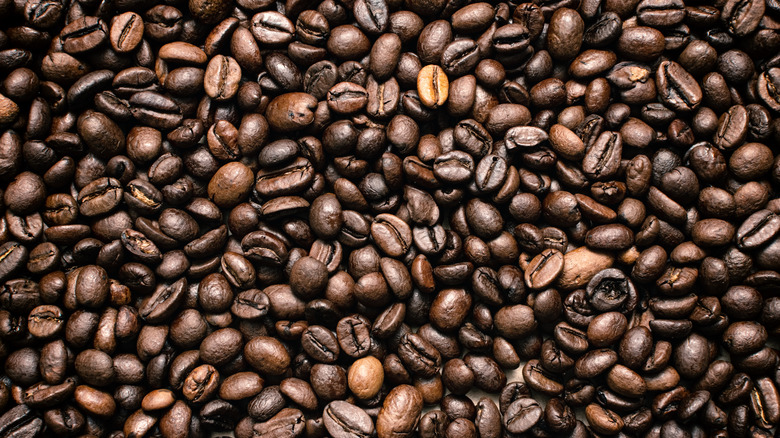How Climate Change Can Affect The Taste Of Coffee
For many people, coffee is an essential part of their day. Whether it's the aroma that fills the kitchen as the hot water steeps the ground coffee or the sip that offers the elixir of caffeine, the reality is that the coffee ritual is essential to the daily routine. Unfortunately, a recent article by Food & Wine claims that the greater issue of climate change could be impacting the beverage in that coffee mug. And according to findings in a recent Tufts University article, "Many coffee-producing regions are increasingly experiencing changing climate conditions, whose impact on coffee's taste, aroma, and even dietary quality is as much a concern as yields and sustainability."
While climate change is not necessarily a new concern, its impact on a beverage that is integral to many people's day might spark a greater discussion on issue. The reports focused on two factors that impact coffee's quality: higher altitude and too much sunlight. Specifically, it is believed that "farms at higher altitudes were associated with better coffee flavor and aroma" (per Tufts), but that area can be impacted by atmospheric changes, including temperature fluctuations. The study goes on to suggest that additional sunlight on the crops can lead to poor-quality coffee. While there may be no immediate solution to these climate change concerns, the study implores coffee drinkers to ponder a bigger question besides an extra scoop of sugar in the mug. When an environmental issue impacts daily life, people might notice the concern more.
Could a new coffee crop be the solution to combating climate change?
When Food & Wine reported that climate change could impact that flavorful cup of coffee, many people took notice. Although the impact might not be tasted during the next Starbucks run, the reality is that growing conditions can and do impact the coffee's flavor. And, as Tufts University reported, the lesser quality coffee is more than just an unsatisfactory sip — it can impact all aspects of coffee production, from price to the farmers cultivating the crops. While a magic bullet may not be available to turn the tide of climate change, other alternatives could solve the coffee issue.
In a recent BBC article, the author reports that "Stenophylla, a rare wild coffee from West Africa that tastes like Arabica coffee but grows in warmer conditions," could be a solution for some of the world's coffee problems. Since warmer temperatures and increased sunlight can have a negative impact on coffee's quality, wild coffee could offset issues with traditional coffee production. While taste tests showed that coffee drinkers found the flavors comparable, additional sipping might be required. Although a new coffee crop might not be brewing at the local coffee shop, this could be a viable solution to keep quality coffee in the mug for the future.

